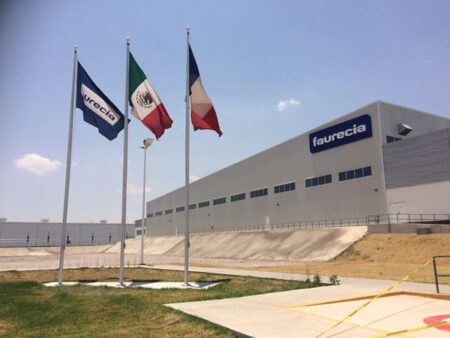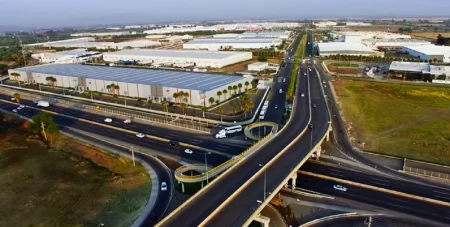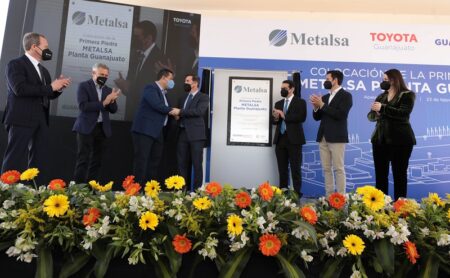What to know about the Mexican Labor Law
If you company is considering starting operations in Mexico and benefit from the competitive labor costs, it is important to learn the basics of the Mexican Federal Labor Law, some of the key regulations and workers’ rights.
What is the Mexican Labor Law?
The “Mexican Federal Labor Law (Ley Federal del Trabajo)” states the laws that concerns to the workers in Mexico.
This Law governs labor relations between employers and workers, establishes the existence of a contract and the employment relationship between the employer and employee.
For the worker it represents a document that grants labor rights and gives clarity in regard to, among others:
- Specific obligations in the employment relationship between the employer and employee.
- Working hours.
- Place and time where the workday start.
- Payment days.
- Rules to prevent working risks.
- Permits and licenses.
- Disciplinary measures and their application.
- The benefits you receive for your work: salary, breaks, vacations, social security, law and additional benefits.
Working contract
Employment contracts are required in Mexico, among the most common are the following:
- Indefinite period contracts: Of the most used in Mexico. It is one that establishes a working relationship in which there is no term of duration. To be considered an employment relationship for an indefinite period of time, it must exceed 180 days.
- Definite period contracts: set for specific periods of time. In this, the duration of the contract is expressly written in the document.
- Seasonal contracts: This type of contract serves those labor relations that are developed for an indefinite period, but to perform discontinuous tasks.
Working hours and Overtime
According to Article 61, the maximum length of a labor day is eight hours during the day shift (48 hours per week), seven hours in the night shift (42 hours per week) and seven and a half hours when mixed (45 hours per week).
- Day shift: This 8-hour shift can take place between 6:00 a.m. to 8:00 p.m.
- Night shift: This 7-hour shift can take place between 8:00 p.m. to 6:00 a.m.
- Mixed shift: This 7.5 -hour shift is a mix between the shifts abovementioned and cannot exceed 3.5 hours worked at night.
Overtime pay rate applies one the employee exceeds the above-mentioned working hours per shift. The first 9 hours of overtime are paid at twice the normal base salary rate. For any overtime going beyond 9 hours per week, employees must be paid at triple their normal base salary rate.
Minimum Wage
Pursuant to Article 85 of the Labor Law, no worker in Mexico may be paid less than this legal minimum wage. Currently, the minimum daily wage in Mexico is $207.44 pesos in most areas of Mexico, except in the Northern Border Zone where the minimum wage corresponds to $312.41 pesos per working day.
Although the aforementioned are the established minimum wages, a common and recommended practice is to pay above the minimum wage in order to attract qualified workers and reduce turnover.
Social security
The first step in order to hire employees is to register your company with the social security institute as an employer known as IMSS (Instituto Mexicano del Seguro Social), which covers, among others: work accidents, retirement and survivor pensions, disability, sickness, and other medical benefits, maternity care, child care and other social services.
Vacation and holidays
All employees are entitled to twelve days of vacation in their first year. They receive two additional days each year until completing 20 days of vacation. Followed by two additional days of vacation every five years of service.
The paid national holidays in Mexico are the following:
a) January 1 New Year’s Day.
b) February 5 Constitution Day.
c) March 21 Birthday of Benito Juárez.
d) May 1 Labor Day.
e) September 16 Independence Day.
f) November 20 Revolution Day.
g) December 1st Presidential Inauguration Day (occurs every six years).
h) December 25, Christmas Day.
i) Others determined by federal and state electoral laws to allow citizens to vote (generally on Sundays).
Are you looking to start operations in Mexico?
If your company is considering to nearshore or offshore to Mexico, in order to benefit from the competitive labor costs in Mexico, it is important to count with all the relevant information regarding the Mexican labor Laws for your decision-making process.
One of the main advantages of working with a shelter company is that your company will get all the expertise, advice and guidance from professionals who understand fully the labor law in Mexico and its implications.
Are you interested in learning more about how to operate in Mexico and how Mexcentrix can support you with a successful start and running of operations? Contact us for a free consultation today










